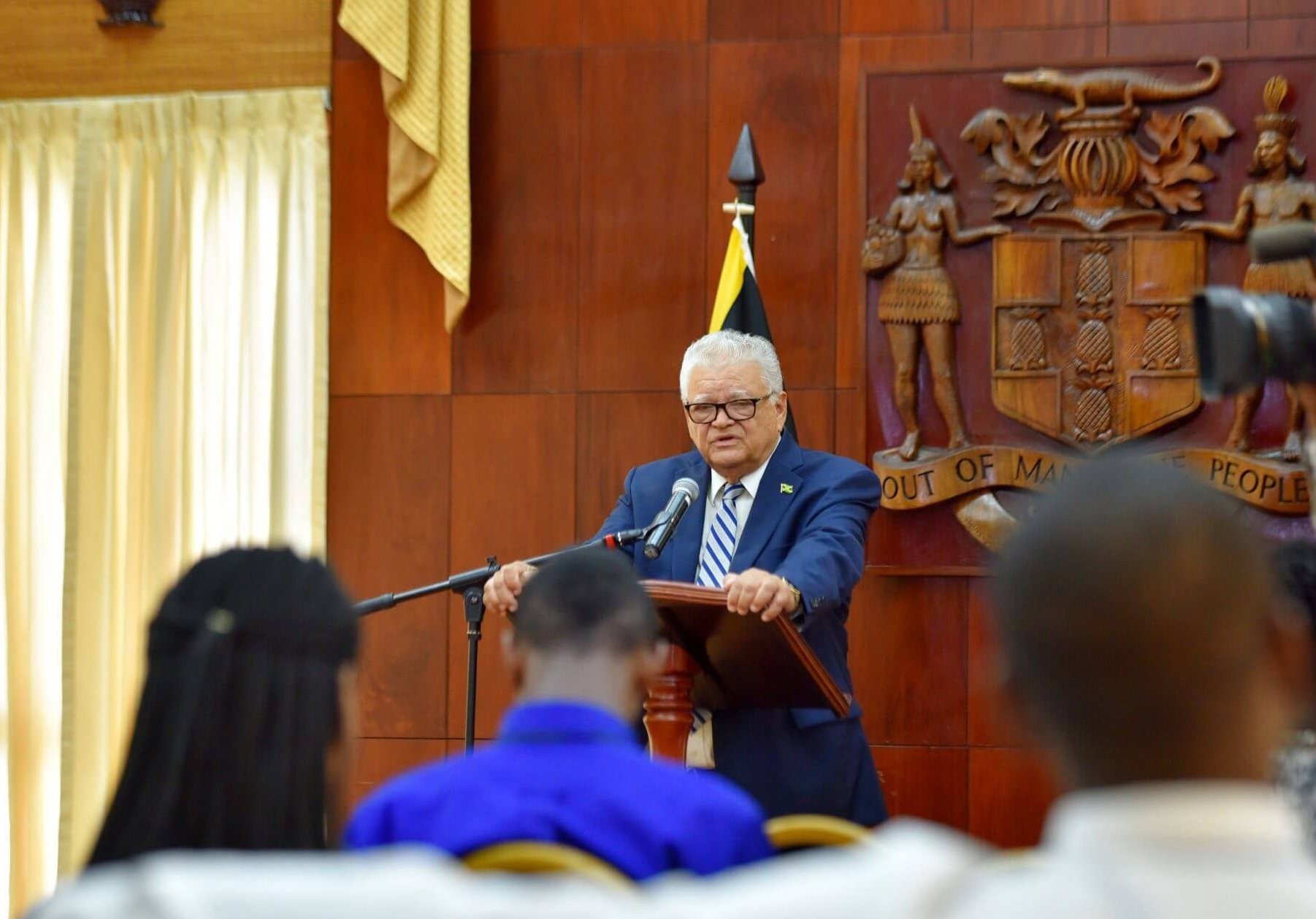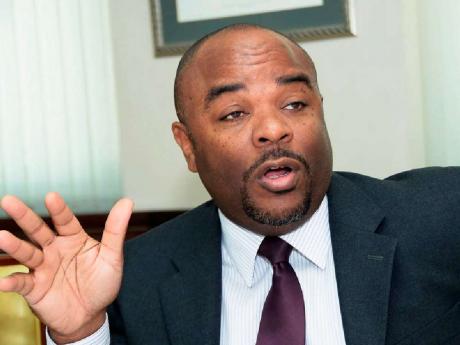Private Pensions Industry Can Drive Higher Levels of Growth – Minister Williams
Photo: Mark Bell
Minister without Portfolio in the Ministry of Finance and the Public Service, Hon. Fayval Williams (second left), converses with (from left) NCB Insurance Company Limited (NCBIC) executives, Business Development Manager, Desmond Johnson, and Managing Director and Chief Executive Officer, Vernon James; and Jamaica Information Service Director for Human Resources, Bernita Locke, during NCBIC’s pension funds seminar at The Jamaica Pegasus hotel, New Kingston, on Tuesday (May 29). Mrs. Williams was the keynote speaker. The seminar was held under the theme ‘Governance for Pension Funds: A Jamaican Perspective’.
Minister without Portfolio in the Ministry of Finance and the Public Service, Hon. Fayval Williams, says the local private pensions industry has the potential to spur higher levels of sustainable economic growth for Jamaica.
With assets totalling approximately $521 billion as at December 2017, representing about 25 per cent of gross domestic product (GDP), Mrs. Williams argued that increased pension savings can positively influence economic growth by, among other things, facilitating the availability of long-term capital for investments.
She said research shows that pension funds provide incentives for investment in illiquid and long-term assets that yield higher returns for pensioners, thereby helping them to stay ahead of inflation – the April out-turn for which was 3.2 per cent – with prospects of a sustainable and decent pension in retirement.
The Minister was speaking at NCB Insurance Company Limited’s (NCBIC) pension seminar, which was held at The Jamaica Pegasus hotel, New Kingston, on Tuesday (May 29) under the theme ‘Governance for Pension Funds: The Jamaican Perspective’.
She noted that the Government’s ongoing disciplined fiscal stance is among the positive underlying factors that will facilitate the pension industry’s contribution to growth.
She cited the introduction of forward-expenditure estimates for three additional fiscal years as at 2018/19, and the proposed establishment of a Fiscal Council that will be a key oversight pillar in Jamaica’s post-International Monetary Fund (IMF) era, as indicators that are “pointing in the right direction”.
Other positive indicators include net international reserves totalling US$3.1 billion at the end of March 2018, the second highest on record following US$3.2 billion achieved last December; further projected reduction in the debt to GDP ratio to under 100 per cent by the end of the 2018/19 fiscal year, next March; sustained business and consumer confidence buoyancy; increased revenue inflows, which saw the income tax (Pay As You Earn) out-turn surpassing the 2017/18 target by $1.8 billion; an increase in newly registered taxpayers by 20,000 persons; and further reduction in domestic arrears from $21 billion to $19 billion.
Mrs. Williams further highlighted an increase in the employed labour force to 1.2 million persons as at January 2018; reduction in unemployment to a record low of 9.6 per cent, with youth unemployment falling from 31.2 per cent to 23.8 per cent; and reduction in the poverty rate to 17.1 per cent.
She pointed out that consequent on these and other developments, Jamaica received positive ratings from two international agencies.
Standard and Poor’s affirmed its ‘B’ rating and maintained its ‘stable’ outlook for the economy, and Fitch affirmed Jamaica’s long-term local and foreign currency ‘B’ rating and revised its economic outlook for the country from ‘stable’ to ‘positive’.
“These ratings confirm their positive assessment of Jamaica’s macroeconomic stabilisation programme and this Administration’s continued staunch commitment to making it (work). They are important hurdles on our path to achieving, eventually… I think… an investment grade rating,” Mrs. Williams added.




